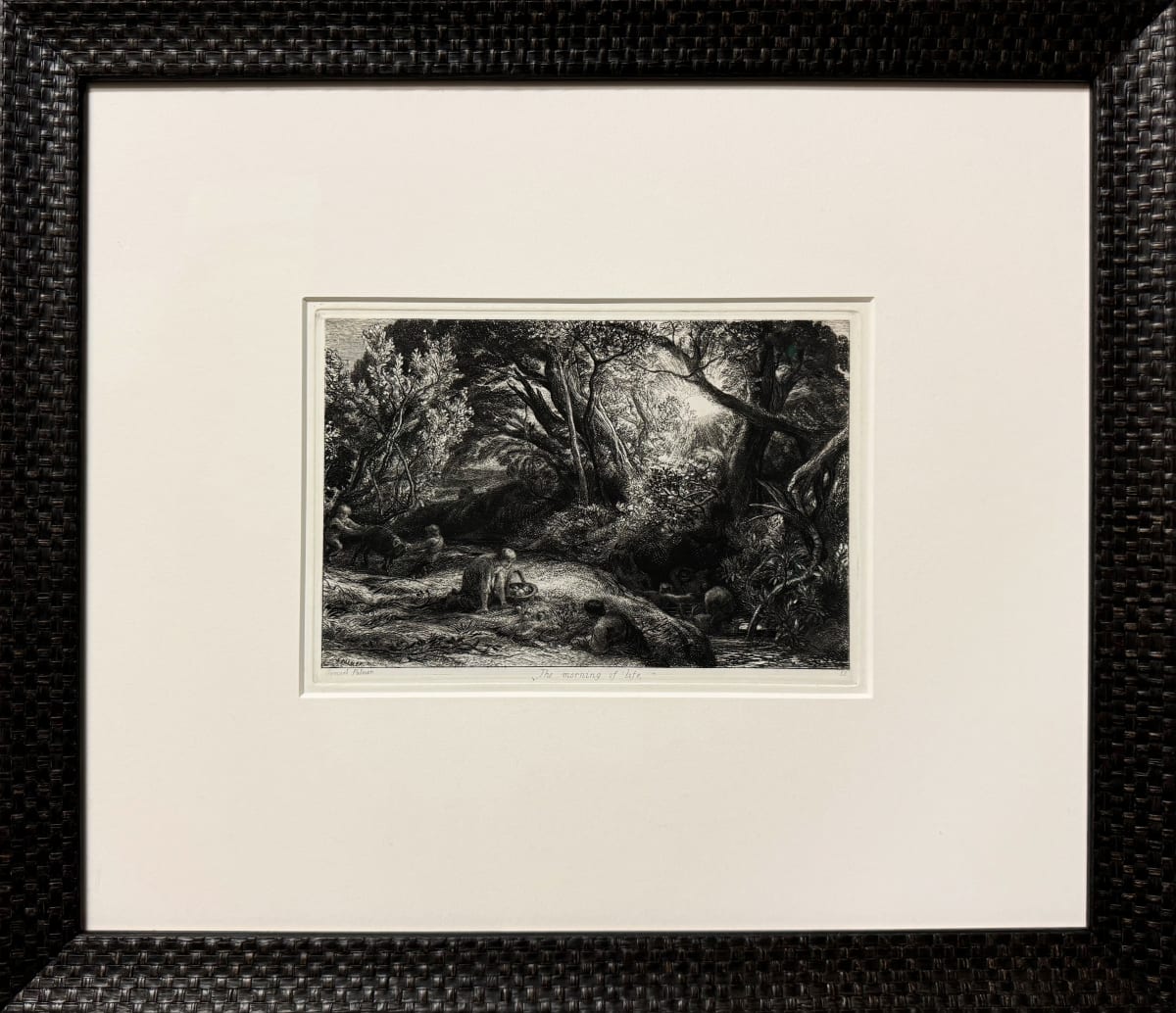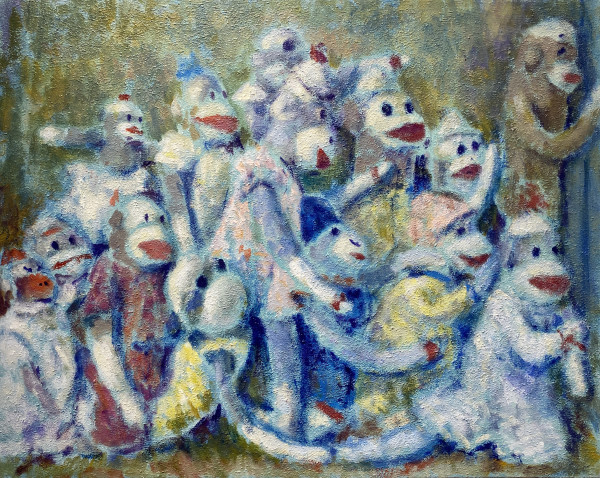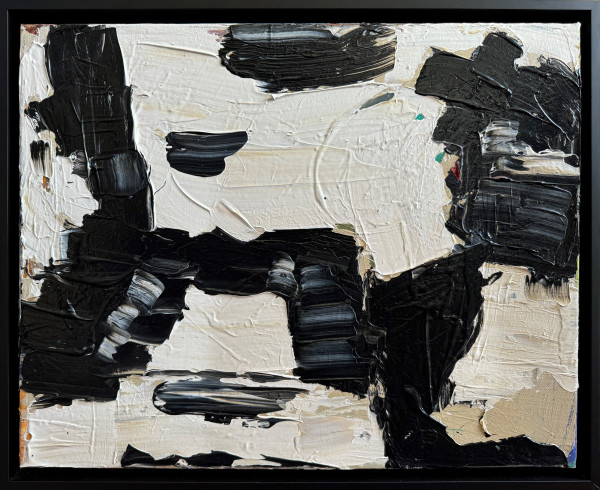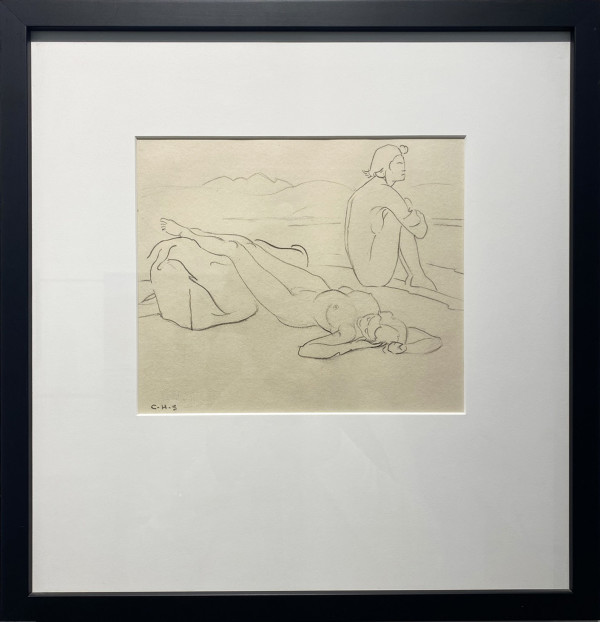- Samuel Palmer (1805-1881)
- The Morning of Life, 1860-1861
- Etching
- 6 x 8.5 in
- C$1,450
-
Sold
6 x 8.5” Plate Size
15.25 x 17.75” Framed
Signed bottom left
Samuel Palmer (1805-1881) was an English painter and etcher of visionary landscapes who was a disciple of William Blake. Palmer was a key figure in Romanticism in Britain and produced visionary pastoral paintings.
Disappearing from public awareness, Palmer was largely forgotten after his death.
In 1909, many of his works were destroyed by his surviving son, who burnt "a great quantity of father's handiwork ... Knowing that no one would be able to make head or tail of what I burnt; I wished to save it from a more humiliating fate".
Resurging in the 1970s, Palmer received a great deal of media attention following the discovery of a number of fakes of his Shoreham works (1826 to 1835), produced by famous art forger, Tom Keating.
Considered one of the most prolific and versatile art forgers of the 20th century, Thomas Patrick Keating claimed to have faked more than 2,000 paintings by more than 160 different artists of unprecedented scope—ranging from the Renaissance (Holbein, Titian, Tintoretto) to Modernism, Expressionism and Fauvism (Kandinsky, Klee, Matisse) — with heavy emphasis on English landscape Romanticists and the French Impressionists. Total estimated profits from his forgeries amount in today's value to more than $10 million.











